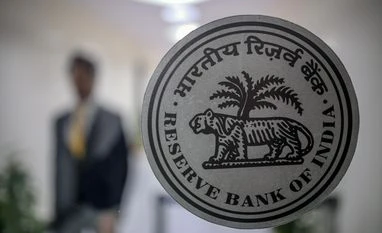Last Tuesday, the Reserve Bank India (RBI) placed on its website, new draft regulations and directions for export and import of goods and services that will come into effect later, with amendments, if any, based on the feedback they get from the exporters, importers and authorised dealer banks (ADs).
At first glance, what is striking is the brevity of the proposed regulations and directions. The draft regulation (872 words) is less than a quarter of the present export regulations (3,700 words). The proposed directions to ADs on exports and imports (2,284 words) is about a twelfth of the current master directions for exports of goods and services (16,122 words) and imports of goods and services (10,828 words) put together. Exporters and importers who are used to detailed RBI guidelines will now have to await the guidelines from the ADs, who have been asked to put in place a comprehensive, well-documented policy as approved by their Board of Directors within six months for handling payment transactions related to export/import of goods and services and merchanting trade.
The present system of monitoring the payments and receipts for imports and exports respectively through the Import Data Processing and Monitoring System (IDPMS) and Export Data Processing and Monitoring System (EDPMS) would continue. Exporters would be required to give the value declaration in the prescribed form that would also include the undertaking to realise the export proceeds within the stipulated time limit of 9 months, applicable in the draft regulations for all types of export transactions. Conspicuous by their absence are the provisions for waiver of such declarations for exports of samples, free of cost replacements or supplies, gifts, goods sent abroad for testing etc.
The draft directions allow ADs to grant more time where an exporter has not been able to realize export proceeds for reasons beyond his control, and also where the exporter has not been able to fulfill the export obligations against export advance. In case of imports also, the ADs can grant extension for making payments. The normal period for making payments for imports would be the period specified in the contract between the buyer and the seller. Exporters taking advances from the buyers must fulfil their obligations within the contracted time limit. ADs may allow set-off of export receivables against import payables in respect of the same counterparties but cannot allow set-off of export receivables for goods against import payables for
services and vice versa. ADs can permit reduction in the full export value in bonafide cases but all cases of reductions of over 25 per cent in the full export value of exports must be put up to their Boards for post-facto ratification.
An exporter can be ‘caution listed’ in the EDPMS if payment against export is outstanding for more than two years after the due date for realisation of export proceeds, including extensions granted, if any. ADs would give the defaulting exporter a notice and an opportunity of being heard before putting his name in the caution list. ADs will handle the documents of a ‘caution listed’ exporter only against full advance payment from the buyer or irrevocable letter of credit.
The draft regulations and directions envisage more discretion to ADs on operational matters relating to imports and exports. Much depends on how they respond.
Email : tncrajagopalan@gmail.com
Unlock 30+ premium stories daily hand-picked by our editors, across devices on browser and app.
Pick your 5 favourite companies, get a daily email with all news updates on them.
Full access to our intuitive epaper - clip, save, share articles from any device; newspaper archives from 2006.
Preferential invites to Business Standard events.
Curated newsletters on markets, personal finance, policy & politics, start-ups, technology, and more.
)